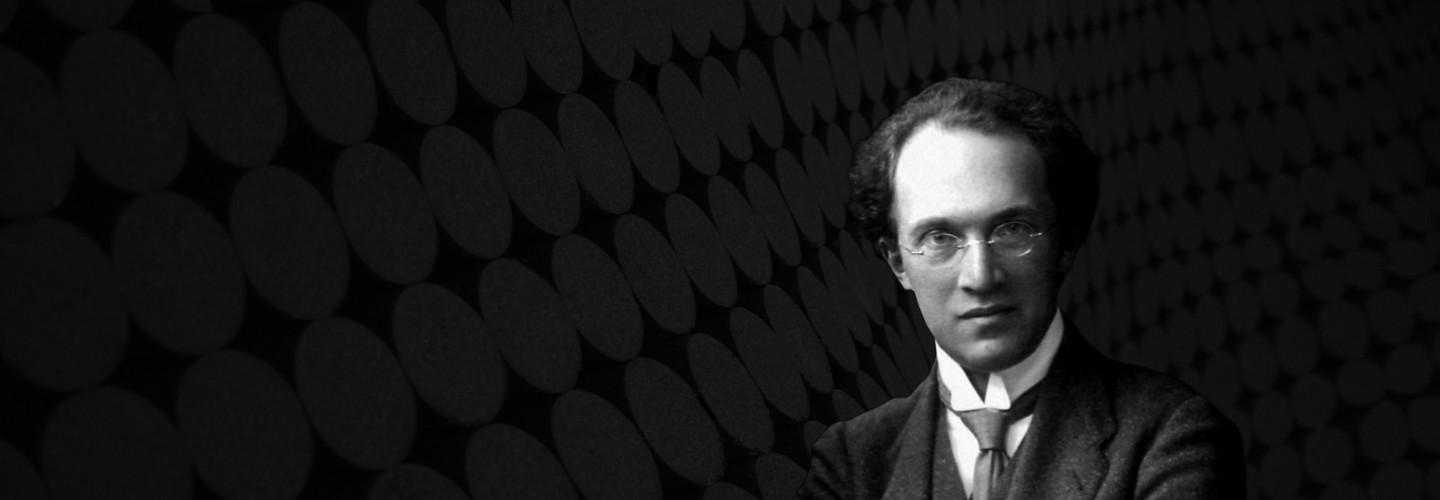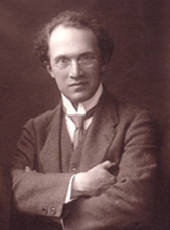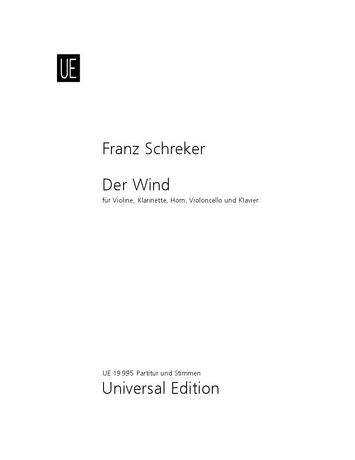

Franz Schreker
Der Wind
Duration: 11'
Sujet von: Grete Wiesenthal
Vorwort von: Christopher Hailey
Instrumentation details:
violin
clarinet in A
horn in F
violoncello
piano
Schreker - Der Wind for violin, clarinet, horn, violoncello and piano
Translation, reprints and more

Franz Schreker
Schreker: Der Wind for violin, clarinet, horn, cello and pianoOrchestration: for violin, clarinet, horn, cello and piano
Type: Taschenpartitur

Franz Schreker
Schreker: Der Wind for violin, clarinet, horn, cello and pianoOrchestration: for violin, clarinet, horn, cello and piano
Type: Partitur und Stimmen
Audio preview
Work introduction
In 1908 the members of a Viennese artistic group commissioned Schreker to write the music for an entertainment based on Oscar Wilde's fairy-tale The Birthday of the Infanta, and this brought him a temporary lift at a very depressed period of his life. The sisters Elsa and Grete Wiesenthal, who were largely responsible for the success of the dance aspect of this complex work, gave Schreker the Impetus to compose further music for dancing. In 1908-9, inspired by a scenario by Grete Wiesenthal, he wrote Der Wind for violin, clarinet, horn, cello and piano. However it was not in fact performed and Schreker put it to one side: not until1958 was it rediscovered by the Austrian musicologist Gösta Neuwirth in the cellars of the publishing house Wiener Universal Edition. Neuwirth realized an edition in parts and full score, and it finally received its first performance on 14th April 1980 in an RSO Berlin chamber concert. The composition sheds light on Schreker's vexed relationship with Schoenberg, with whom he was in close contact at the time. Schreker instructs the pianist to depress the piano keys silently – an instruction also found in Schoenberg's song Am Strande of 1909. It is uncertain which of the two invented the idea: it certainly appears in works by both composers at around the same date. In Der Wind there also occurs a good example of Schreker's characteristic “montage” technique.
Helge Grünewald
Translated by Cella Skrine
